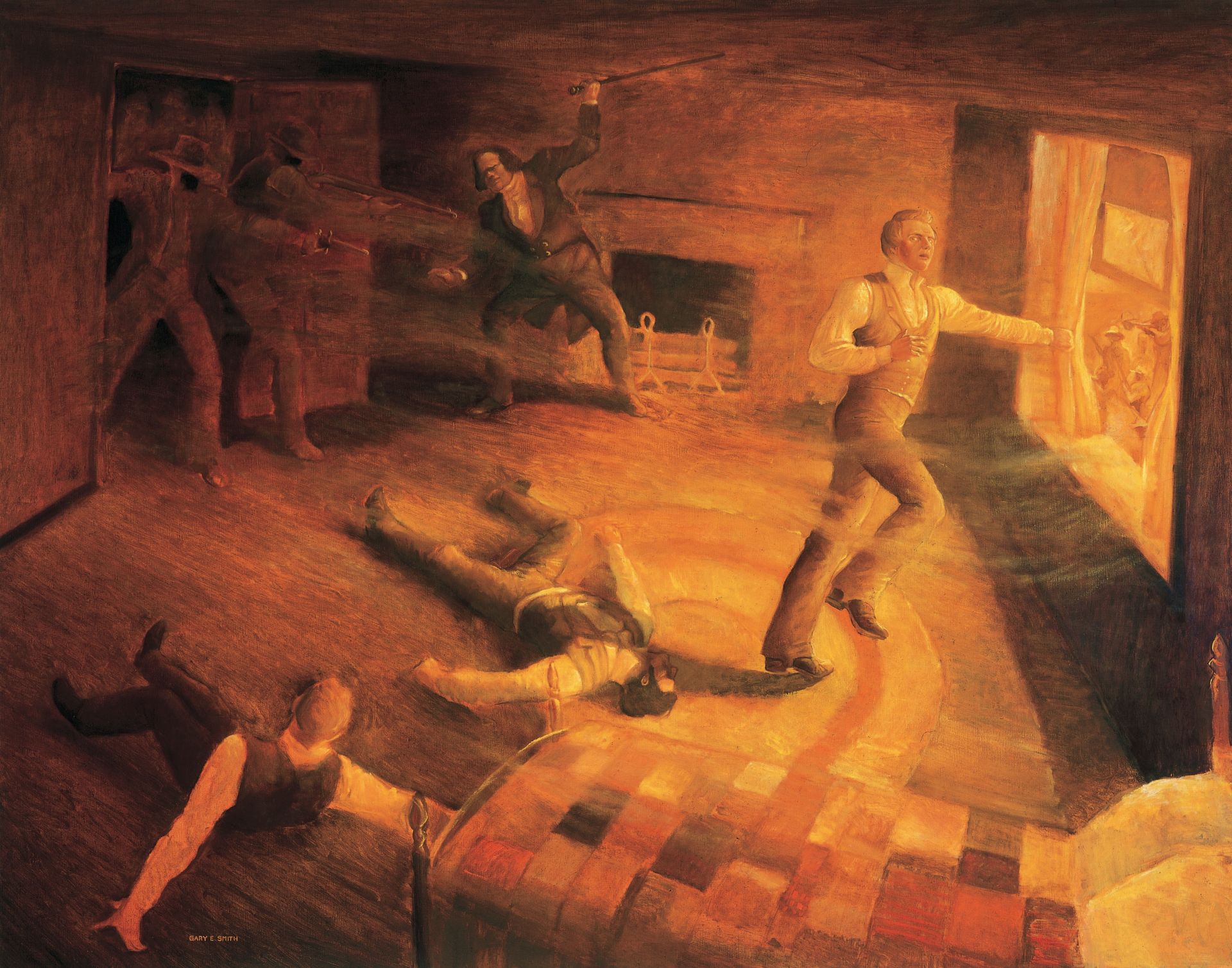Looks like I have a lot to say this first part of the Old Testament. You get another blog post (but don't worry -- the Elders will be back soon). This time it's about Adam and Eve.
Judaism, Christianity, and Islam seem to have the following points in common concerning the "Fall":
- Adam and Eve were living in the Garden of Eden in a perfect state. That is, no sickness, no death, etc.
- Adam and Eve were innocent -- meaning they had no knowledge of evil.
- God planted the Tree of Knowledge of Good and Evil in Eden and provided two commandments: Be fruitful and multiply AND do not partake of that fruit. Eating the fruit meant they would die.
- A serpent tempted Eve to partake of the fruit.
- Eve then got Adam to partake.
- God appeared, cursed the serpent, and casted Adam and Eve out of the Garden.
- Then death, pain, evil, and all kinds of other bad things came into the world.
Most Christian denominations see this as the "Fall" of Adam and Eve. All they had to do was to NOT partake of the fruit -- one simple task -- and then we would all be living happily with no sin and death. It would be a wonderful world. But Adam and Eve messed it all up, so now we must all suffer. Jehovah's Witnesses even go so far as to say that Adam and Eve are permanently dead (as punishment) and will not be resurrected because of this direct disobedience to God.
But then the Book of Mormon and the Doctrine and Covenants of my church sheds more light on the subject.
First off, let me ask you a question. Have you ever wondered why God placed the Tree of Knowledge of Good and Evil in the Garden? We'll call this the Knowledge Tree. I must be specific here, because God placed that other tree as well: the Tree of Life.
It seems that if God had really wanted no one to partake of the Knowledge Tree, He could have simply NOT put it there in the first place. Then there would be no temptation, and we would all be living happily.
Before I continue, I must share that once when I asked this question, someone accused me of being blasphemous for questioning God's motives and for even suggesting that God makes mistakes. Needless to say, that particular discussion pretty much ended there. But I do not ask this question in an attempt to prove God is fallible and unreliable, but rather I'm simply asking the question so that we can have a better understanding. If we hold to the assumption that God cannot make mistakes, then asking the question helps us to better understand the true purpose behind what He did.
Taking this a little further, let's say Adam and Eve never partake of the fruit, and then there are millions of progeny running around without sin. All it would take would be just one person to eat that fruit, and it would unleash death on everyone. As an actuary, I can calculate the odds of someone eating the fruit, and with millions of people having access to it, those probabilities are very high .... more than 99.999999999999999999%.
I naturally come to the conclusion that since God placed the Knowledge Tree on Earth, and since God doesn't make mistakes, He was planning for someone, somewhere, at some time to eat that fruit. It therefore seems to be an important piece of His plan. He knew exactly what was going to happen, and He was ready for it.
And that's what my church teaches:
- Partaking of the fruit was necessary to instill the knowledge and ability of procreation.
- Partaking of the fruit opened the door to two deaths: Physical Death and Spiritual Death.
- There must be opposites in all things. You can't have true joy unless you understand sorrow. Likewise, you really can't be good unless you have knowledge of evil.
- Humans are here on Earth to be tested. This requires the knowledge of good and evil to enable us to make decisions.
- The first great decision was deciding which of the first two laws to follow: Procreate, or refrain from eating the fruit? They couldn't do both.
- Death and all the other bad things in life give us experience and help us to become better people.
And then come my thoughts. Who wouldn't want the knowledge of good and evil? Satan actually asks this question as he tempts Eve -- and well, the master of lies is adept as using truth as part of his tactics. His goal was to bring evil into the world so he could have a measure of power. But I must admit -- isn't knowledge always a good thing?
Think of a little toddler -- all innocent and cute with no real knowledge of what's good and what's bad. How many times have you seen a toddler do something bad (like punching a sibling) without fully understanding what he was doing? Having no knowledge of good vs. evil does not stop a person from committing evil. Rather, the person is free from any judgement -- because they didn't know any better.
Likewise, Adam and Eve, in their perfect state, were free to do anything they pleased. But without the knowledge of good and evil, they could perchance perform evil acts as well -- because they wouldn't know any better. What would stop them and their progeny from committing adultery? Or from stealing? Or from hurting others? Avoiding these acts is impossible without knowledge.
It's kind of the age-old paradox: would you rather know what you're doing wrong, so you can stop doing it and be happier? Or would you rather not know that it's wrong so you never feel bad about doing it? From above, it appears much more desirable to have knowledge so you can increase your happiness in the end. In other words, making good decisions with knowledge, to me, is preferable over living in ignorance.
That's why I think the following (which I never noticed before until today): What if God placed the Knowledge Tree there intentionally because he wanted humans to have the choice to partake? Kind of like a contract. Adam and Eve knew beforehand what the stakes were. God told them what the tree was: eating of the fruit would give them very valuable knowledge, including how to have children. But it would come with a price: death, sickness, being cast out. They could have chosen NOT to partake, and they would have lived alone for an eternity in the Garden, living peacefully, but missing out on the bigger blessings now available to all of us.
But, they ultimately decided to partake. Perhaps they saw both the benefits of the knowledge and the price and decided it was worth it. We also have no idea how long it took them to make that decision. Were they millennia in the Garden before the Fall, or was it just one hour? We don't know, but then again it doesn't matter to us. We are in the state we are in now, and we can do our best to return back to Him, through Jesus' redemption for us.
So, there you have it. A summary of what my church believes, how it defers from most denominations, and also my additional thoughts. I hope you've enjoyed these ramblings, and as always, you can let me know what you think.


